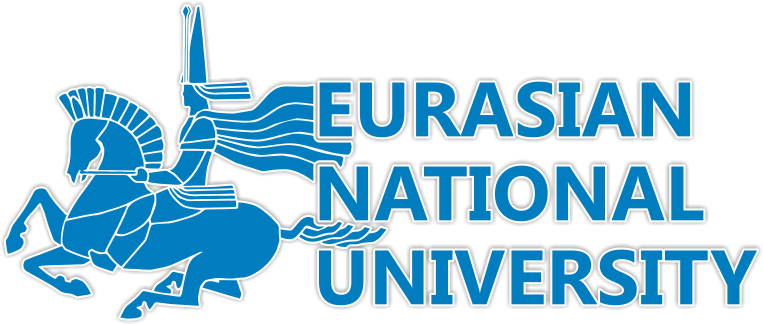The quality assurance policy reflects the relationship between research, teaching and learning. To ensure the quality of training, the department has a strong human resource potential. The staff of the department consists of 15 people, including doctors of science, professors - 6 people, candidates of Science-3, PhD doctors-6, the degree of the department is 100 %. Teaching in the specialty "Turkology" is conducted by qualified teachers who undergo annual retraining at scientific and methodological seminars of the department, faculty and university, as well as at scientific forums, internships in the near and far abroad. The teaching staff of the department carries out a lot of scientific work, involving students of the “6B02212 – Turkology”.
The department operates the scientific school of M. Zholdasbekov "Steppe civilization". Within the framework of this school, dozens of monographs, books, articles in rating journals and mass media have been published on integrative Turkology in linguistic, literary, historical and cultural aspects. The Department of Turkology has been publishing the journal "Turkology" since 2019. Editor - in-Chief-Doctor of Science, Professor, Academician of the National Academy of Sciences of the Republic of Kazakhstan E. B. Sydykov, Deputy Editor-Doctor of Science, Professor Sh. Ibraev, Executive Secretary-Doctor of Ph. D., Professor N. G. Shaimerdinova. The editorial board of the journal consists of foreign and Kazakhstani scientists. The scientific publication publishes research articles on Turkology. The scientific publication publishes research articles of the Turkological direction of teachers and doctoral students of the department. In addition, during the reporting accreditation period from 2016 to the present, the department has developed 12 projects in fundamental research areas funded by the Ministry of Education and Science of the Republic of Kazakhstan, as well as 2 (two) international projects. Since 2016, the dissertation council on the specialty "Turkology" has been functioning.
Currently, the department is developing 2 projects through the Ministry of Education and Science of the Republic of Kazakhstan, in which students of the OP "8D02212 – Turkology"take part. Teaching staff of the Department of Turkology as public figures of the Republic of Kazakhstan and scientists (professors M. Zholdasbekov, Sh. Ibraev, N. Shaimerdinova, A. Kairzhanov, M. Eskeeva, A. Sharip) carry out a great public work in the Republic of Kazakhstan, publishing and speaking at foreign Turkic conferences and forums. In order to motivate and stimulate the activities, the PPP KPI project has been implemented since 2018.
An important criterion for the effectiveness of the scientific activity of the faculty and doctoral students of the Department of Turkology is their publication activity in highly rated journals included in the Scopus and Web of Sciences databases: the number of publications over the past 5 years is 28 articles, including 26 in the Scopus database, and 2 in the Web of Sciences database.
Within the framework of scientific projects, theses and doctoral dissertations were written and successfully defended. The list of scientific projects is presented in the table:
Scientific projects of the Department of Turkology
1) Zholdasbekov M. ; «The state of Oguz and Desht-i-Kipchak in the context of the history of Kazakhstan and world civilization»; Ministry of Education and Science of the Republic of Kazazstan MES RK; 2015-2017
2) Shaimerdinova N. G. ; «Runic writing: origin and functioning in the Steppe area of Eurasia»; Ministry of Education and Science of the Republic of Kazazstan MES RK; 2015-2017
3) Tazhibaeva S. Zh. ; «The Turkic World of Kazakhstan: language variants, cultural archetypes, identification of the Turkish Diaspora»; Ministry of Education and Science of the Republic of Kazazstan MES RK ; 2015-2017
4) Eskeeva M. K.; «Mutual influence of the Turkic-speaking states in the system of higher education: a general set of textbooks on linguistic Turkology»; Ministry of Education and Science of the Republic of Kazazstan MES RK ; 2015-2017
5) Shaimerdinova N. G., Tazhibaeva S. Zh.; «Interaction of Turkic languages and cultures in post-Soviet Kazakhstan»; Volkswagen Foundation grant; 2014-2017
6) Zholdasbekov M., Shaimerdinova N. G.; «Preservation and development of the ethnic cultural heritage of the Kipchak-Oguz peoples in the conditions of modern Kazakhstan»; Ministry of Education and Science of the Republic of Kazazstan MES RK ; 2018-2020
7) Sharip A.; «National and cultural specifics of the concept "Tugan Zher" and its artistic representation in Kazakh literature»; Ministry of Education and Science of the Republic of Kazazstan MES RK ; 2018-2020
8) Syzdykov S. M.; «The idea of Alash and the values of Mangilik El in the context of the Tugan Zher program and the modernization of public consciousness: historical experience, continuity and prospects»; Program-target; 2018-2020
9) Moldabay T.; Written heritage of Mongolia; Mongolia; 2018-2021 гг.
10) Eskeeva M. K.; «Paremiological sources of modernization of spiritual values: aspects of the study of Turkic proverbs»; Ministry of Education and Science of the Republic of Kazazstan MES RK;
5 summer round tables and International conferences were held: the IV International Turkological Summer School "Ethnolinguistic, Historical and cultural aspects of Turkology", the international scientific and theoretical conference "The Turkic world and International relations: history, personality, prospects", dedicated to the 80th anniversary of the famous state and public figure, Ambassador Extraordinary and Plenipotentiary of the Republic of Kazakhstan, Turkologist, Doctor of Philology, Professor Myrzatai Zholdasbekov.
At the Department of Turkology of the Faculty of International Relations of the Eurasian National University. L.N. Gumilyov, there is a student Turkological circle "Young Turkologist". Members of the student circle annually take a fruitful part in scientific conferences, Olympiads and competitions of scientific projects.
Research report for 2020 (in Russian)
